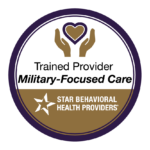Mental Health Support for a New Lupus Diagnosis
“I can be changed by what happens to me. But I refuse to be reduced by it.” ~ Maya Angelou
Being diagnosed with lupus is life-changing.
Have you recently been diagnosed with lupus? If you’re like most people, receiving your diagnosis was probably a long, hard journey. According to the Lupus Foundation of America, it takes nearly 6 years for people with lupus to be diagnosed, from the time they first notice symptoms. Now that you’ve received your official diagnosis, you may feel overwhelmed, relieved, uncertain, and about a million other emotions about what lies ahead. We understand the mental challenges that can accompany a new lupus diagnosis. Our mission is to guide you through this journey with compassion and offer resources and techniques to assist you in prioritizing your mental well-being.
Where to Start with a New Lupus Diagnosis

When you’re newly diagnosed with lupus, it’s natural to feel lost or unsure of what steps to take.
Here are some practical steps to prioritize your mental health:
- Get organized. Even if being an organized person isn’t your thing, now is the time to fake it until you make it. You’ll want folders for things like:
-
- Doctor appointments
- Health insurance and billing information
- Lab work and test results
- Medication lists
- Treatment records
- Articles and research
- Legal documents
- Important phone numbers/contact information
- Learn About Lupus. Normally, we’d say stay away from “Dr. Google”. But now that you’ve received your diagnosis, educating yourself about your condition can be empowering and can help you better understand your symptoms and treatment options.
- Build a Support Network. Connect with loved ones and consider joining lupus support groups to share experiences and find understanding.
- Prioritize Self-Care. Incorporate gentle exercise, balanced nutrition, and sufficient rest into your daily routine.
- Communicate with Your Healthcare Team. Be open about your physical and emotional symptoms to ensure holistic care.
- Eat healthy. Talk to your doctor about your current diet and see if there are any changes you should begin integrating. Getting those daily nutrients from fruits and vegetables just became a bit more important for your body.
- Stay Active. Staying active can feel like the last thing you want to do with a disease that causes so much fatigue. But physical activity can reduce symptoms of lupus, It’s also a great way to increase endorphins and serotonin which can help to reduce stress, ease the symptoms of depression and anxiety, improve your sleep, improve cognitive function, and more!
- Quit Smoking. We know this one is way easier said than done, but study after study has shown that smoking only complicates lupus.
- Talk to a therapist when you need to. Talking to a therapist is a great way to find support for your lupus diagnosis outside of your everyday circle. Keep reading to see how we can help.
Counseling can help.
Counseling offers a safe space to process your feelings and develop strategies for coping with the challenges of living with lupus. We’ll help you understand and navigate the complex emotions surrounding your diagnosis, as well as the not-so-complex ones. Sometimes, it just sucks and all you need is a willing ear to listen. We’re here for you. Your therapist can help you learn to manage stress and anxiety effectively, set realistic health-related goals, strengthen your communication skills to express your needs to family, friends, and your healthcare team, and cultivate a mindset of acceptance and resilience.
How Lupus Can Affect Your Mental Health
A lupus diagnosis doesn’t just impact your body; it can profoundly affect your emotional well-being. Here are some common mental health challenges individuals with lupus may experience:
- Depression – Feelings of sadness, hopelessness, or loss of interest in activities you once enjoyed.
- Anxiety – Persistent worry about your health, future, or ability to manage your condition.
- Guilt – Feeling like a burden to loved ones or struggling with the need to ask for help.
- Frustration – Dealing with unpredictable symptoms and limitations can lead to emotional fatigue.
- Identity Challenges – Adjusting to changes in your daily life or sense of self due to your diagnosis.
- Indecisiveness – Difficulty making decisions can stem from the stress and cognitive challenges associated with lupus, adding to feelings of frustration and self-doubt.
- Low Self-Esteem – Chronic illness can erode the confidence of the most confident among us, leading to feelings of inadequacy or diminished self-worth.
- Inability to Concentrate – Known as “brain fog,” this can make daily tasks and decision-making more difficult.
- Diminished Memory – Cognitive challenges can lead to forgetfulness, adding to stress and feelings of inadequacy.
- Thoughts of Death or Suicide – The emotional toll of lupus can sometimes lead to dark thoughts or suicidal ideation, highlighting the importance of seeking professional help.
- Intrusive Thoughts – Unwanted and distressing thoughts can disrupt your ability to focus and find peace.

How Can Therapy Help When Diagnosed with Lupus?
You didn’t ask for this diagnosis, but that doesn’t mean you have to do it alone. You are not a burden. You’re strong. You’re resilient and you’ve overcome so much already. We’re here to reinforce what you already know about yourself and to help you use your strengths to keep moving. At MUV Counseling we offer a variety of counseling modalities that can support you as you navigate a new lupus diagnosis, such as Cognitive Behavioral Therapy (CBT), which focuses on changing unhelpful thoughts and behaviors, Acceptance and Commitment Therapy(ACT) supports value-driven action and Narrative Therapy/Life Story Therapy helps build insight into your story of self and meaning in your life. These three approaches can provide an effective way to process and manage the emotions associated with a new lupus diagnosis.
Types of Therapy for Lupus Support in Scottsdale
Cognitive behavioral therapy (CBT)
- Identifies and challenges unhelpful thought patterns, such as catastrophizing or self-criticism.
- Teaches practical strategies for managing stress and maintaining a positive outlook.
- Helps you break the cycle of negative thoughts and behaviors that can exacerbate emotional distress.
Acceptance and commitment therapy (ACT)
- Encourages you to accept the realities of your diagnosis while committing to actions that align with your values.
- Helps you develop mindfulness skills to stay present and reduce the emotional impact of negative thoughts.
- Promotes psychological flexibility, empowering you to respond to challenges with resilience and purpose.
Narrative/Life Story Therapy
- Allows you to explore the story of your life and how lupus fits into it, helping you find meaning and purpose despite the challenges.
- Helps reframe your experiences, focusing on your strengths and resilience rather than limitations.
- Encourages you to externalize lupus as a part of your story, rather than defining your identity, fostering a sense of empowerment and control.
For more details about therapy for a new lupus diagnosis in Scottsdale, call us at 480-300-2635 for a free 15 minute consultation or email us with your questions. If you’re ready to get started, schedule online here.




